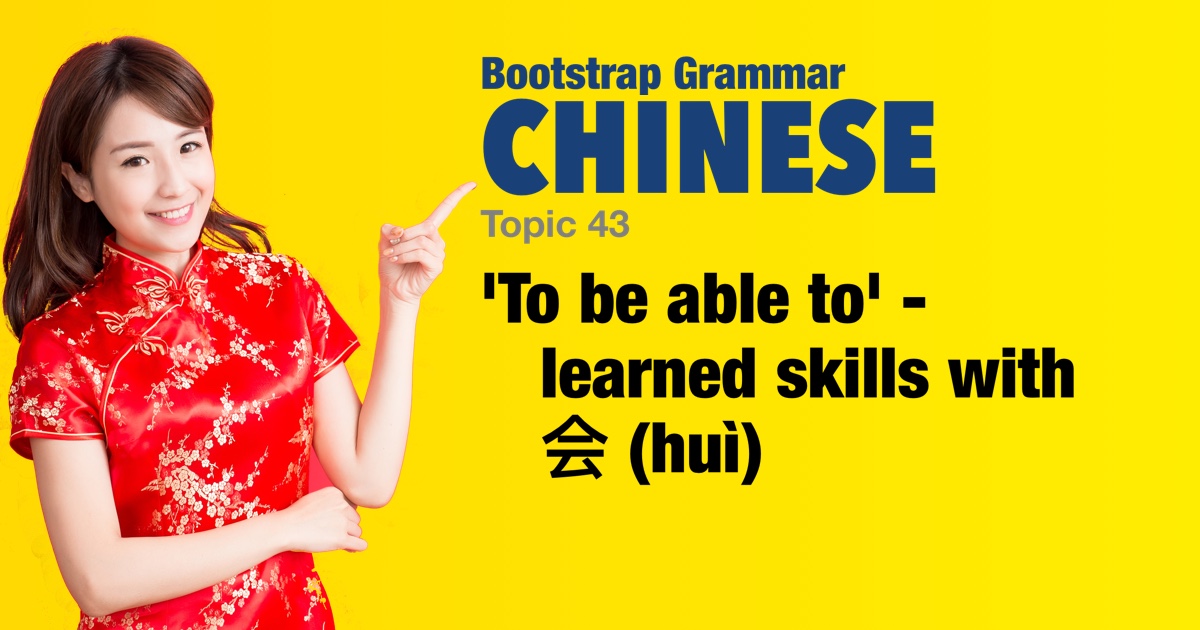Chinese grammar - 'To be able to' - learned skills with 会 (huì) |
|||
|
|||
The word 会 (huì) can be used to express an ability that has been learned (a skill). It is like 'to be able to' but only for skills that can be learned. To express the lack of a learned ability, simply put 不 (bù) in front of 会. Note that In different contexts, 会 can also imply possibility or future actions which we we see in a later topic. |
| Examples: | |
|
我会说中文。
wǒ huì shuō zhōngwén. I can speak Chinese.
|
|
|
她会唱歌。
tā huì chànggē. She can sing. |
|
|
他会写汉字。
tā huì xiě hànzì. He can write Chinese characters.
|
|
|
你们会游泳吗?
nǐmen huì yóuyǒng ma? Can you (plural) swim?
|
|
|
他会读英文吗?
tā huì dú yīngwén ma? Can he read English?
|
|
|
他们不会说英语。
tāmen bú huì shuō yīngyǔ. They cannot speak English.
|
|
|
你会弹钢琴吗?
nǐ huì tángāngqín ma? Can you play the piano?
|
|
|
她不会开车。
tā bú huì kāichē. She cannot drive.
|
|
|
他们都不会说英语。
tāmen dōu bú huì shuō yīngyǔ. They all cannot speak English. |
|
|
你会写很多字吗?
nǐ huì xiě hěnduō zì ma? Can you write many characters?
|
|
|
他会说很多语言。
tā huì shuō hěnduō yǔyán. He can speak many languages.
|
|
 |
|




